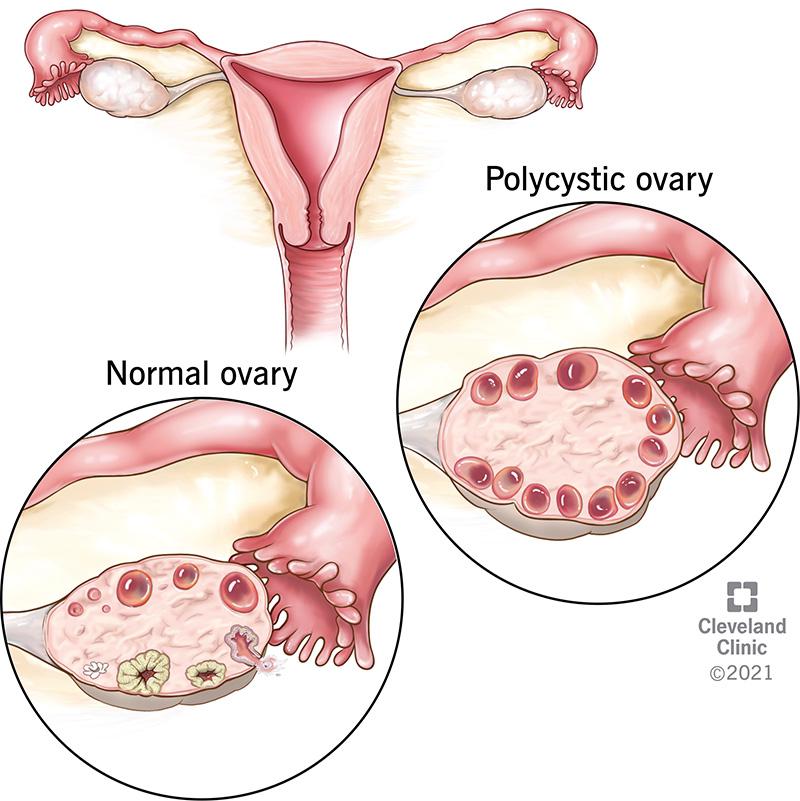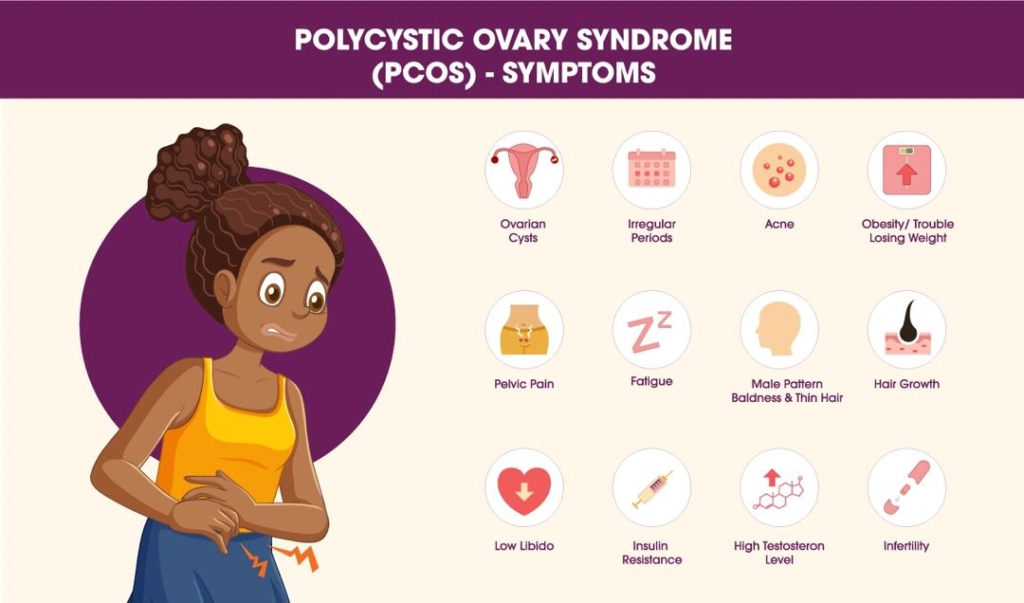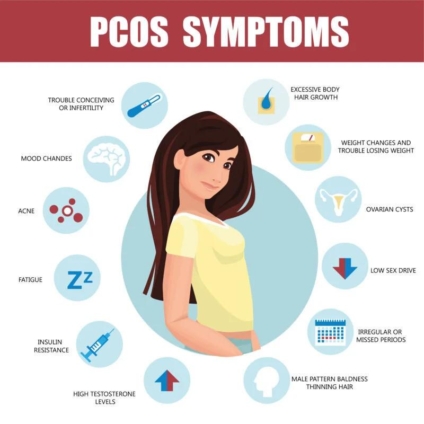When Evelyn, a 24-year-old university student, missed her period for six months straight, she thought it was just stress from school. But a hospital visit revealed something she had never heard of before: Polycystic Ovarian Syndrome (PCOS).
“I was shocked. I didn’t even know such a thing existed,” she recalls. “All I knew was that my periods were irregular, sometimes 10 months out of 12, sometimes less. I didn’t think it was serious until the doctor told me.”
Evelyn’s story is far from unique. Health workers say many women in Ghana are living with PCOS without even knowing it.
What exactly is PCOS?
Polycystic Ovarian Syndrome is one of the most common hormonal disorders among women of reproductive age. Doctors describe it as a condition linked to abnormal hormonal levels and sometimes genetics, with mothers often passing it on to daughters.

PCOS usually develops in the teenage years or early twenties, but symptoms differ from person to person. Some women develop ovarian cysts, partially formed eggs that never mature due to hormonal imbalance, while others don’t. Contrary to myths, most of these cysts do not burst or require surgery; they are eventually reabsorbed into the body.
The silent symptoms
PCOS is often called a “silent” syndrome because many of its signs are dismissed as everyday issues. Doctors say the most common symptoms include:
- Irregular periods or long gaps between cycles
- Excess male hormones (androgens) leading to facial/body hair and thinning hair on the scalp
- Cysts in the ovaries seen through ultrasound
In teenagers, it may show up as severe menstrual pain, prolonged bleeding, or persistent irregular cycles.
“Most young girls don’t even know what is normal and what isn’t,” explains Miss Juliana, Maternity In-Charge at Winneba Municipal Hospital. “By the time they realize something is wrong, the condition may have already affected their health and fertility.”
The Bigger Picture

PCOS doesn’t just affect periods. Doctors warn it can affect nearly every system in the body:
- Metabolic health: Increased risk of diabetes, high blood pressure, and heart disease
- Reproductive health: Infertility, pregnancy complications, and higher risk of endometrial cancer
- Skin and hair: Dark skin patches, acne, and excess hair growth
- Mental health: Anxiety, depression, and disordered eating, often triggered by the emotional toll of reproductive challenges
The cost of care
Even when women suspect something is wrong, cost can be a barrier. At Trauma and Specialist Hospital, an ultrasound scan costs ₵60, while lab tests vary. Evelyn recalls doing a Fasting Blood Sugar (₵15) and HbA1c test (₵130) only after saving up.
“The doctor wanted me to do both a scan and lab test, but I couldn’t afford everything at once,” she says.
Raising awareness
Experts say that the biggest challenge with PCOS is not just treatment, it’s awareness. Many women only discover the syndrome when they struggle to conceive.
“We need to talk more about this condition,” Miss Juliana stresses. “Women should not wait until they want children before they start paying attention to their menstrual cycles and hormonal health.”
Advice for women
Health experts recommend that women:
•Visit a gynecologist regularly
•Track their menstrual cycles
•Watch for unusual symptoms such as prolonged bleeding or skin changes
•Maintain a healthy diet and lifestyle
•Avoid self-medicating with contraceptive pills without medical advice
A silent struggle
For Evelyn, living with PCOS has been a lesson in self-awareness. “If I had known earlier, maybe I wouldn’t have ignored the signs,” she says. “Now I pay attention to my body, and I want other women to do the same.”
PCOS may not always be life-threatening, but its long-term effects can be devastating if ignored. With greater education and open conversations, more women can seek help early and manage the syndrome before it steals their peace of mind and their dreams of motherhood.
Source: Emmanuella Tettehki Samadji


